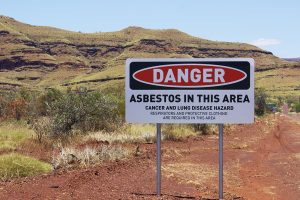Mesothelioma News: Environmental exposure
Posted on Wednesday, February 22nd, 2017 at 10:17 am
Mesothelioma News: Environmental exposure
In general mesothelioma mainly affects males and is diagnosed to males at the average age of sixty years. The main reason why men are mainly affected is because of occupational exposure. Occupational exposure occurred because men were the main group chosen to work in factories and manufacturing companies. The time period when men were picked for such jobs was between 1940s and 1980s. This was mainly because the work needed a lot of workers and the workers would need a lot of strength. Those men who were exposed to asbestos worked directly with asbestos products or asbestos related products. Such as brake pad manufacturing or asbestos ceiling manufacturers. But studies by the University of New Caledonia Epidemiologist Francine Baumann looked closely at environmental risks of mesothelioma in the U. S. The study also looked at asbestos environmental exposure and its effects on women and young people.
Baumann stated that while the use of asbestos is reducing, the environmental causes of asbestos exposure are increasing. He also mentioned that the environmental exposure to asbestos is likely to increase the number of women and young people exposed to asbestos. Therefore, the cause of the increase of mesothelioma would be environmental exposure.
What is environmental exposure?
Environmental exposure to asbestos is where natural deposits of asbestos are found in a certain area. Over time the deposits can be disturbed as a result of road construction, developments for commercial use or erosion. Such things plus weather conditions of high winds and dry conditions make the asbestos fibers airborne. When these fibers are inhaled or swallowed they can be deadly.
Maps of asbestos and other fiber deposits have been updated. The updates show that in California and other western states there are large deposits of such materials. Also some countries that are at high risk of environmental exposure are Mexico, Turkey, Italy, Australia and South Africa.
